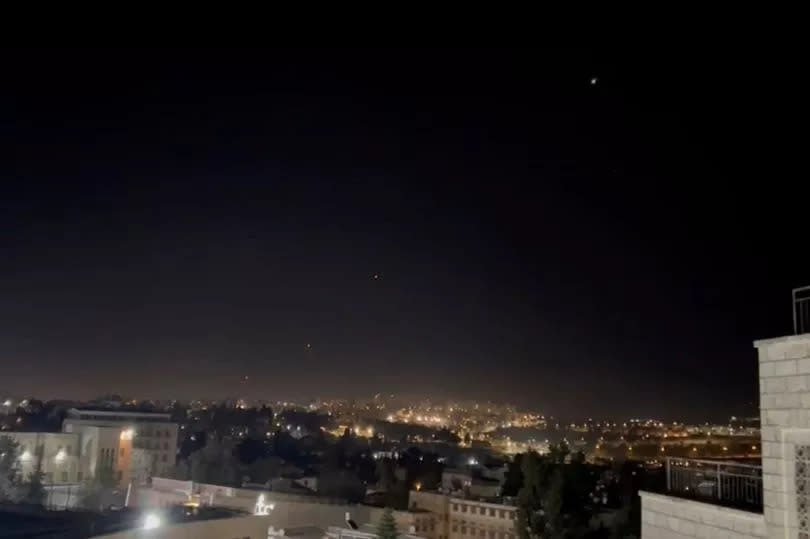Israel officials says country blocked 99% of Iran missiles in unprecedented attack

Israel says it has successfully 'blocked' 99 per cent of missiles launched towards it overnight.
It comes after Iran sent 300 drones and missiles in an unprecedented attack. However, tensions remain high in the region alongside a potential counter-strike from Israel.
Meanwhile, US president Joe Biden said he would orchestrate a meeting of the Group of Seven on Sunday "to co-ordinate a united diplomatic response to Iran's brazen attack". A US official is said to have reported to Israel that it does not plan on striking Iran itself.
Read more: "Who wants my ex?": The vile websites where intimate images of women from Manchester are shared
According to Israel, Iran launched 170 drones, more than 30 cruise missiles, and more than 120 ballistic missiles in the early hours of Sunday (April 14). The attack ended by Sunday morning with Israel reopening its air space.
“Iran launched more than 300 threats and 99% were intercepted,” said Rear Admiral Daniel Hagari, the Israeli military spokesman. “That is a success.”
When asked if Israel would respond to the attack, Rear Admiral Hagari said it would do what is necessary to protect its citizens. Israeli Prime Minister Benjamin Netanyahu posted a short message on X, formerly Twitter, saying: “We intercepted. We blocked. Together, we will win.”
Defence minister Yoav Gallant said: "This campaign is not over yet. We need to remain vigilant … and to prepare for any scenario,” he said in a video statement.
“At the same time, we blocked the first wave (of attacks), and we did it with great success.”
General Mohammad Hossein Bagheri, chief of staff of the Iranian armed forces, confirmed the operation was over, according to the state-run IRNA news agency. He was quoted as saying: "We have no intention of continuing the operation against Israel."
Iran’s president, Ebrahim Raisi, claimed Iran had taught Israel a lesson and warned that “any new adventures against the interests of the Iranian nation would be met with a heavier and regretful response from the Islamic Republic of Iran”.
Iran's Foreign Ministry also summoned the ambassadors of the UK, Germany, and France following condemnation from the countries over the attack. On its website, the ministry said the ambassadors were called over the respective governments' "irresponsible stances" on the Iranian operation against Israel.
It says the strikes were a retaliation for a strike widely blamed on Israel on an Iranian Consular building in Syria earlier this month. Leaders from the G7 will hold a video conference early on Sunday afternoon to discuss the strikes.
However, Iran's paramilitary Revolutionary Guard issued a fresh threat to the US "The terrorist US government is warned any support or participation in harming Iran’s interests will be followed by decisive and regretting response by Iran’s armed forces,” said a statement carried by IRNA.

 Yahoo News
Yahoo News 